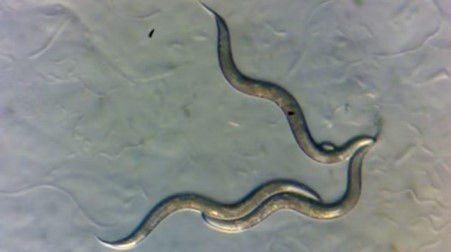Scientists find radiation-resistant animals in Chornobyl with potential to unlock cancer predisposition in humans

Photo: Ecodiia
Microscopic worms residing in Ukraine's soil show no response to radioactive radiation in Chornobyl, located in the Kyiv region. Examining these worms may shed light on individuals' susceptibility to cancer.
According to the Daily Mail, this is discussed in a study published in the Proceedings of the National Academy of Sciences.
Scientists studied worms that lived in the soil 46 kilometers from the Chornobyl nuclear power plant. They discovered that these worms are physically and genetically very different from their "relatives" from other regions of Ukraine – primarily in their resistance to radioactive radiation.
"I saw footage of the exclusion zone and was shocked by how lush and overgrown it looked. I never thought it would be teeming with life. It's an ideal landscape for looking for worms particularly resistant to radiation exposure," says a research associate at the Faculty of Biology of the New York University Sophia Tintori.
Biologist Timothy Musso from the University of South Carolina visited Chornobyl in 2019 to learn how radiation affects worms in the exclusion zone. For the experiment, he selected worms from soil, rotten fruit, and other organic materials in places with different pollution levels.
Scientists sequenced the genomes of 15 O. tipulae worms from Chornobyl and compared them with the genomes of five O. tipulae from other parts of the world.

Photo: Sofia Tentori
Scientists were amazed that after a series of analyses, they could not find any traces of radiation damage in the genomes of Chornobyl worms – they were as healthy as their relatives from "clean" regions.
"This does not mean that Chornobyl is safe. Instead, it means that nematodes are resilient animals and can withstand extreme conditions.
We also don't know how long each of the worms we collected was in the exclusion zone, so we can't be sure exactly what level of exposure each of them and their ancestors have experienced over the past four decades," Tintori said.
The results showed that the resistance of worms to chemical mutagens was different and did not depend on the level of radiation in their habitat. This means that the worms in the Chornobyl zone did not develop their resistance to radiation, and their evolution was not accelerated due to radiation exposure.
This study may provide an answer to the question of why some people are genetically more prone to cancer.
"Knowing how people respond differently to DNA-damaging agents will help us better understand our risk factors," added Sofia Tintori.
For reference:
Earlier, scientists discovered that the wolf population living in the Chornobyl Exclusion Zone had mutated and could be cancer-resistant.
It should be noted that the Chornobyl reserve showed rare footage of a whole pride of wild lynx hunting.






















































